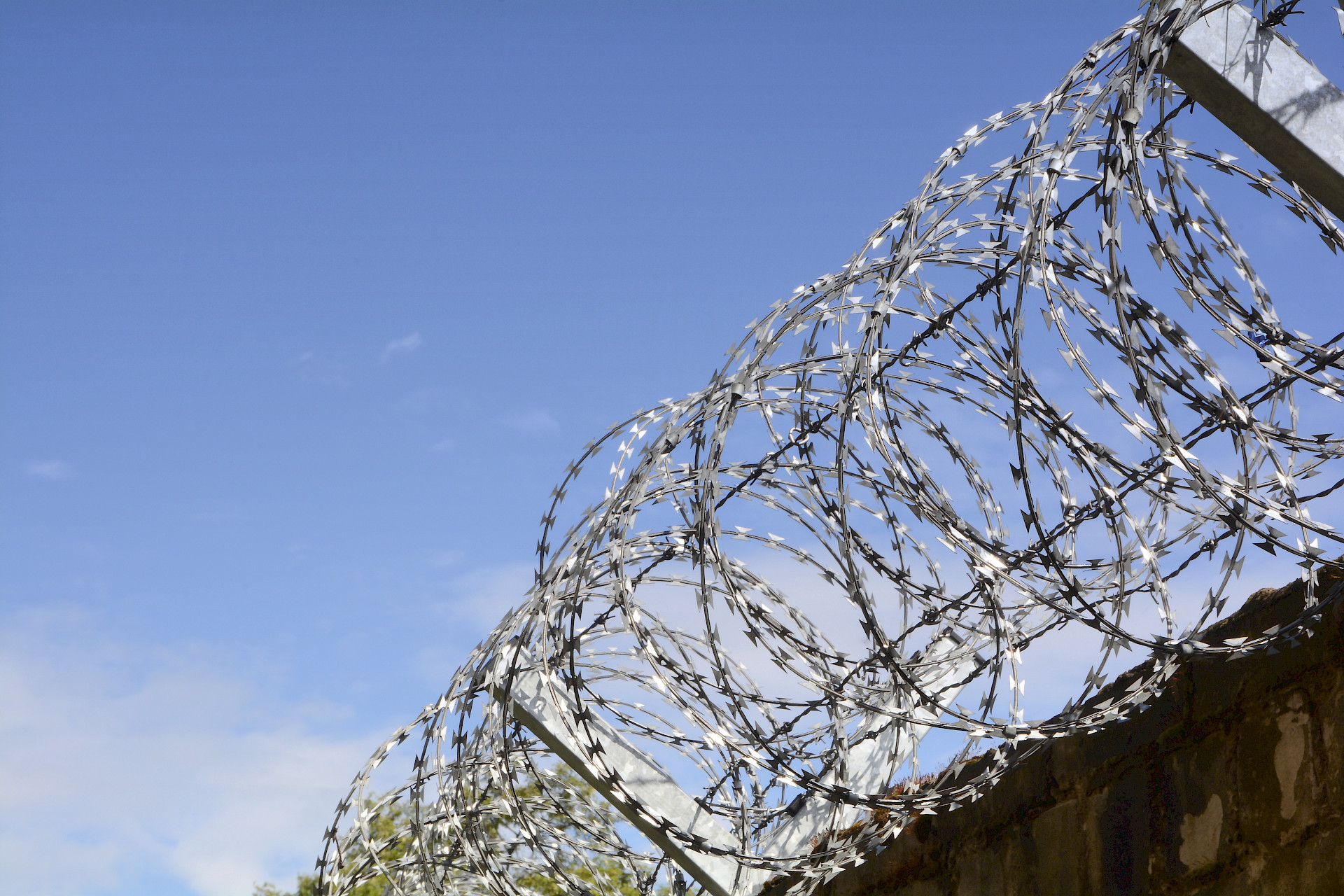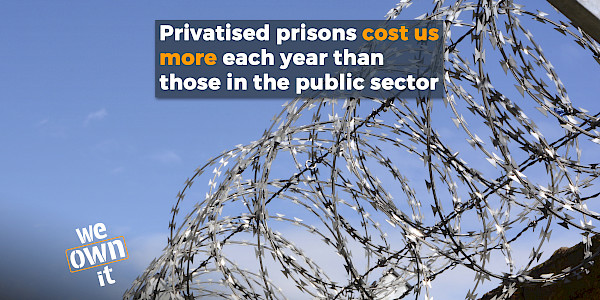
Key facts
- The private companies running our prisons aim for around 8-10% profit margins, meaning less money to train staff or invest in our prisons.
- Data suggests that as of November 2021, 77% of private prisons were overcrowded, compared to 56% of public prisons. Private prisons were also found to be slower at reducing overcrowding during the pandemic.
- A 2019 survey revealed that private prisons were 47% more violent than public ones.
- HMP Northumberland was sold off in 2014 to Sodexo, who promised savings of £130 million over 15 years - but these cuts came at a price. A 2017 Panorama report revealed the dangers being faced by both staff and inmates as it showed balaclavas, wire cutters, and prisoners escaping compounds to smuggle in drugs.
- All three prisons in Northern Ireland are publicly-run and less overcrowded than those in the rest of the UK.
- In 2016, there was drug-fuelled violence at Sodexo’s Forest Bank prison.
- Violence at a Doncaster prison run by Serco was revealed in 2014 to be four times higher than at other similar-sized prisons.
The history
Our prisons look after over 85,000 people. When they're working well, they can help offenders to rehabilitate back into society so they can stop being a risk to the public and rebuild their lives. When they're working badly, they are violent, dangerous places for both prisoners and staff.
In 1992, Wolds Prison in Yorkshire became the first modern European prison to be run by the private sector. G4S, the company that ran Wolds Prison, was later stripped of this contract. But, by 2023, the number of our prisons in the private sector had grown to 14 in England and Wales and two in Scotland.
At the same time, government cuts have had a devastating impact on our prisons - this powerful article explains how. It tells the story of Ben who committed suicide in Nottingham prison. The coalition government cut prison budgets by 20% and the number of prison staff fell by almost 30%. Since then, there have been further government drives to make cuts through privatisation and understaffing.
The result has been catastrophic. Across England and Wales, overcrowding in prisons is becoming the norm. Prisoners will soon be held in police cells because there's nowhere else for them to go. Between 2009 and 2019, deaths in custody in English and Welsh prisons increased by 86%, while serious assaults on staff increased by 228%. Private prisons tend to be more overcrowded - cutting staff numbers can boost profits.
Who owns our prisons?
Of the 15 privately run prisons in the UK, G4S and Serco each run four and five respectively, while French food service firm, Sodexo, now runs six. All of these companies have proven that they are not up to the task of running our prisons.
Serco - the private outsourcing company given control of test and trace - was responsible for one of Scotland’s biggest Covid outbreaks in 2021 as almost 300 people tested positive at its Ayrshire prison.
Meanwhile, an independent enquiry in 2021 revealed gross negligence at Sodexo run HMP Bronzefield after an incident in 2019 in which a baby died after a teenage girl had been left to give birth alone in a cell.
The story of G4S running HMP Birmingham is one of the clearest demonstrations that prison privatisation simply does not work. In April 2019, the government terminated its contract with G4S to run Birmingham prison after it was described by the Chief Inspector of Prisons as the worst prison he had ever been to. In 2023, G4S admitted that it had failed in its running of the prison.
To find out more about the state of our prisons, visit the websites of the Prison Reform Trust and the Howard League for Penal Reform.
Related news
-
4 Jun 2024 Source: www.channel4.com
-
A prison once branded a "hell hole" has improved significantly after being brought into public ownership
- Prisons
30 May 2023 Source: www.bbc.co.uk -
Violent assaults increasing at Scotland’s troubled private prison
- Media Mention
- Prisons
27 May 2023 Source: theferret.scot -
-
Prisoners set to be held in police cells due to overcrowding
- Prisons
6 Feb 2023 Source: www.bbc.co.uk

